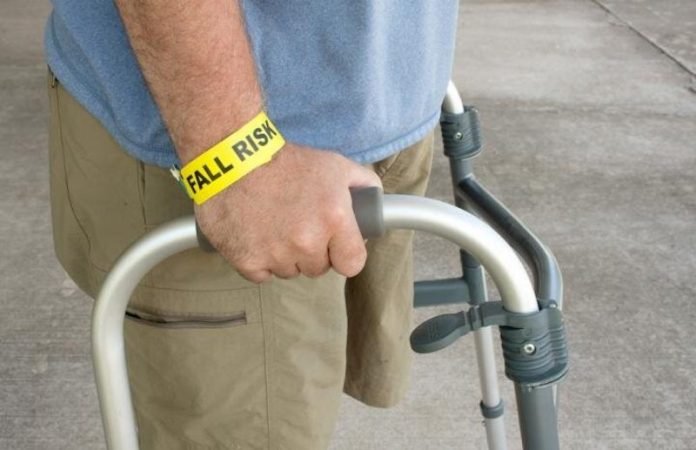
In a new study, researchers found that drones, smartphones, and sensors could provide a lifeline to the world’s growing elderly population at risk of falls.
They have designed a new system to remotely monitor elderly people.
The system could detect abnormalities in people’s heart rate and temperature which can lead to falls, and provide urgent first aid via a drone if a fall occurs.
The research was conducted by a team from Iraq and the University of South Australia.
It is estimated that around 30% of adults over the age of 65 experience at least one fall a year, in many cases fracturing a hip, or sustaining head injuries.
The annual global cost of fall-related acute care for older people has risen dramatically in recent years as the world’s population ages.
In the study, the team has developed an advanced fall detection and first aid system for the elderly
This wearable device can monitor vital signs using a wireless sensor attached to the upper arm and send a message to an emergency call center if physiological abnormalities or a fall are detected.
When a case is critical, first aid supplies can be delivered to the patient via a drone, up to 105 seconds faster than an ambulance.
The system not only correctly measures heart rate and falls with 99% accuracy, but also identifies the elderly person’s location and delivers first aid much faster.
The team has also designed an advanced smartphone-based program that uses an intelligent autopilot, containing a destination waypoint for planning the path of a drone.
According to the team, the fall detection device consists of a microcontroller, two bio-sensors, a GPS module to track the location and a GSM module to send a notification to the smartphones of caregivers.
The second part includes a first-aid package, a smartphone, and a drone to deliver the package.
The team believes this new device could provide better care to older people who are at a high risk of falls.
The lead author of the study is UniSA Adjunct Senior Lecturer Dr. Ali Al-Naji.
The study is published in Sensors.
Copyright © 2019 Knowridge Science Report. All rights reserved.



